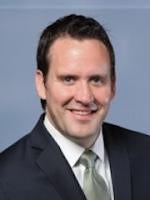In Davis v. Kewanee Hospital, 2014 IL App (2d) 130304, the Second District of the Illinois Appellate Court rejected a physician's attempt to obtain records utilized by a hospital in assessing the physician's qualifications for potential employment. Kewanee Hospital had offered employment to Dr. Davis, a surgeon and anesthesiologist, contingent on credentialing by the hospital. The hospital obtained information from Dr. Davis's professional references and subsequently withdrew its offer of employment. Nearly three years later, Dr. Davis requested from the hospital copies of all data from all sources used by the hospital in reaching its decision. The hospital refused, and Dr. Davis filed suit.
In granting the hospital's Motion to Dismiss, the court held that neither the Medical Studies Act nor the Health Care Professional Credentials Data Collection Act ("Data Collection Act") provided Dr. Davis with a private right of action to sue the hospital. Both statutes contain language protecting information gathered in the credentialing process as confidential but also contain provisions declaring the "claim of confidentiality shall not be invoked to deny such physician access to or use of data upon which such a decision [to deny staff privileges], was based" or "to deny a health care professional, health care entity, health care plan, or hospital access to or use of credentials data." See 410 ILCS 517/15(h); 735 ILCS 5/8-2101. It was these exceptions on which Dr. Davis relied.
The Court rejected this analysis, finding the purpose of both statutes is to protect the general public by ensuring meaningful self-evaluation and regularity in the credentialing process, not to protect physicians whose performance was under review. Further, neither statute was enacted to prevent injury to physicians due to lost employment prospects, but rather to prevent increased rates of death and illness. Allowing a private right of action under these circumstances, thereby allowing the physician to obtain the identity of those who provided negative information, would only serve to deter candid disclosure and undermine the purposes of the statutes.
Finally, both statutes provide for negative consequences for violations of the 'physician right to access' provisions: the Medical Studies Act makes a violation a Class A misdemeanor (See 735 ILCS 5/8-2015), and the Credentials Act provides for fines by the Department of Public Health up to $1,000 for the first offense and $5,000 for every subsequent offense (See 410 ILCS 517/40). The court noted Dr. Davis was not left without a remedy, as he may pursue a common-law cause of action for slander. Accordingly, neither statute provided Dr. Davis with a cause of action to obtain the desired records.




 />i
/>i

